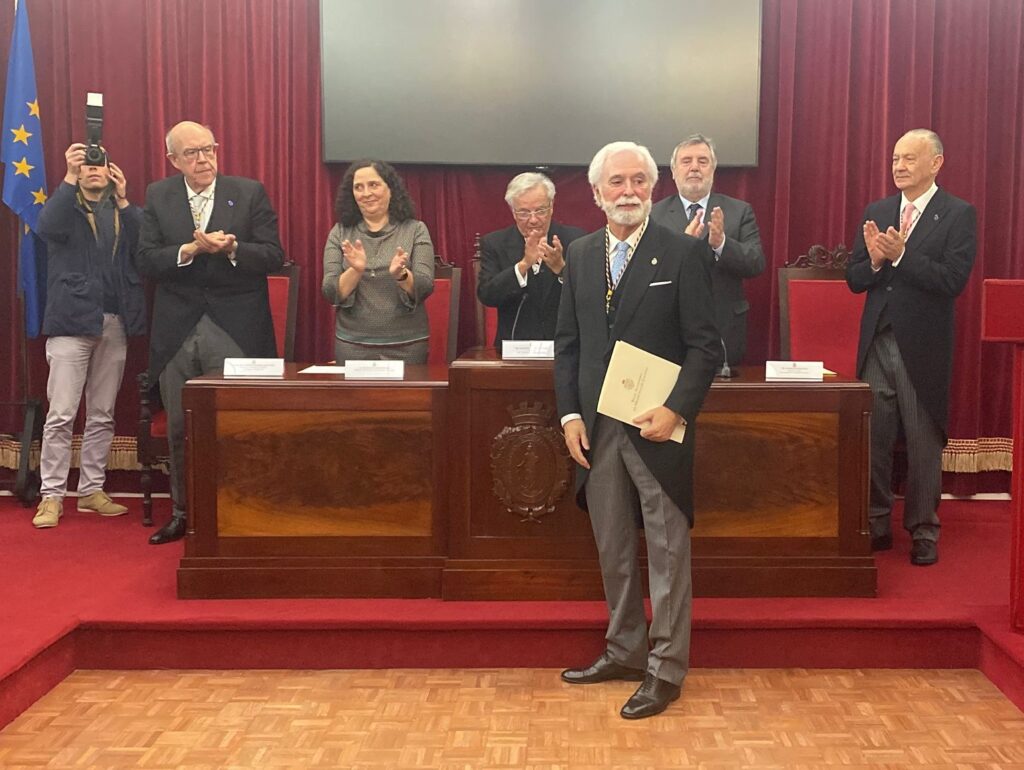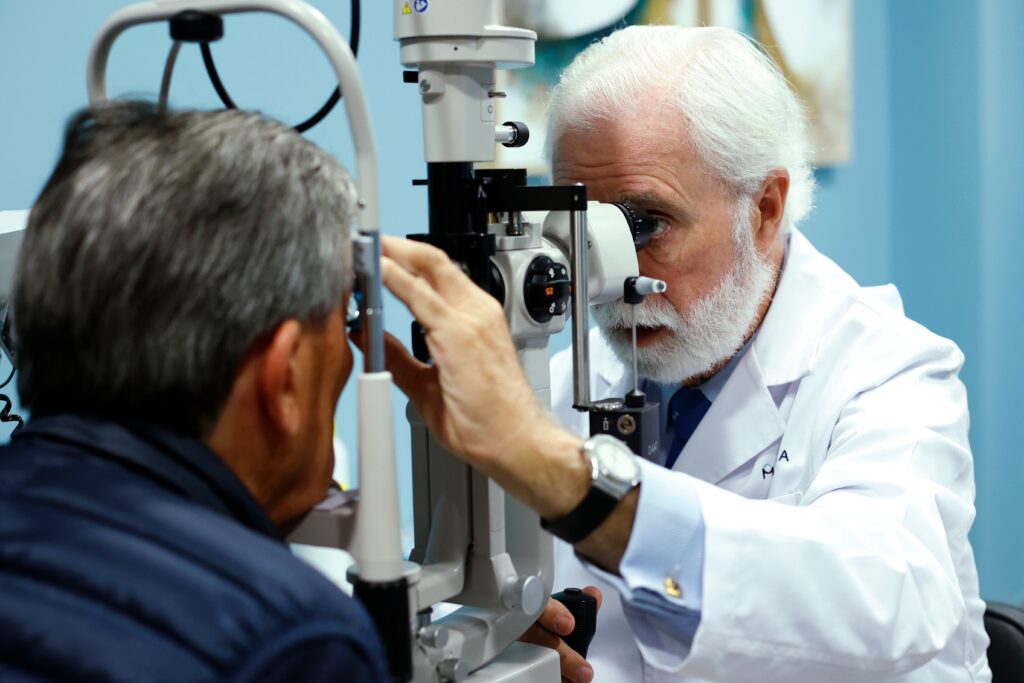
Prof.Francisco Gómez-Ulla becomes a full member of the Royal Academy of Medicine of Galicia (Ophthalmology)
Prof. Francisco Gómez-Ulla, professor of Ophthalmology at the University of Santiago de Compostela, founder of and medical director at Miranza Instituto Gómez-Ulla and former president of the Spanish Society of Retina and Vitreous and the Galician Society of Ophthalmology, has become a full member of the Ophthalmology Chair of the Royal Academy of Medicine of Galicia.
At the admission ceremony, Prof. Gómez-Ulla presented his paper “Age-related Macular Degeneration – A fight against avoidable blindness”, a subject matter that has much to do with his professional biography, as he has devoted more than four decades to the study of the retina and macular disorders. “In my early days, the macula, which is the central and most important point of the fundus for vision, featured little or no therapeutic options”, he said.
In his talk, Prof. Gómez-Ulla also thanked his forerunner on the chair, Prof. Manuel Sánchez Salorio, for his inspiration, as “he has faithfully exerted the values of the Academy, knowledge, talent and excellence” and “whose personality and leadership I discovered in the summer of 1974 at the Ophthalmology Department, when I was a medical student; from then on I knew what my calling was and who my role model was”, he emphasised.
The dawn of a new era – diagnostic imaging and antiangiogenics
In his talk, Prof. Francisco Gómez-Ulla reviewed the significant developments that have taken place over the last twenty years in terms of wet AMD and in the last year as to dry AMD. “These advances have changed the prognosis of AMD for good, from a disease with no therapeutic possibilities to the availability of effective drugs that have turned it into a chronic disease”, he said.
“The future is bright and highly promising, and I am sure that in upcoming years we will see significant new advances for our patients that will improve their visual function and quality of life as well as reduce the number of visits they currently endure, both for them as patients and for us as doctors, for treatment delivery”, he concluded.
Intraocular injections of antiangiogenic drugs have been a groundbreaking solution for ophthalmologists and a cry of hope for patients. “However, there is still much to be done and many issues to be solved. We must not forget that current antiangiogenic drugs are blocking substances and not inhibitors; thus, their effect wears off over time, forcing us to perform repeated intravitreal injections, which entails an overloaded healthcare system”, he recalled. This has a direct impact on the need to reorganise ophthalmology offices and departments, both in terms of technological equipment and of human and administrative resources, while optimising available resources.
What is more, introducing diagnostic imaging by incorporating OCT into routine clinical practice has made it easier to diagnose wet AMD, check the therapeutic response and monitor its evolution. Angi-OCT scanning has also emerged as a non-invasive test that can be repeated within minutes to analyse actual flow in the different layers of the retina by means of coronal sections.

The future of AMD – intravitreal therapy units and artificial intelligence
In his talk, Prof. Gómez-Ulla also focused on the future of AMD thanks to the implementation of vitreous therapy units (UTIV) in ophthalmology departments, which would afford patients, healthcare professionals, managers and the healthcare system in general great benefits. This model ensures correct treatment of macular disorders, which enables patients to be treated in a timely and more efficient manner, thus leading to better results, allowing up to 40% more patients to be seen without overloading the healthcare system and facilitating early diagnosis and quick referrals.
With regard to artificial intelligence, he noted that AI has become a promising tool in the diagnosis, treatment and management of AMD. It is being used via machine learning algorithms to analyse retinal images that are captured by techniques such as OCT. These algorithms can detect signs of AMD early, even before the patient notices any symptoms. This allows a faster and more accurate diagnosis compared to manual assessment.